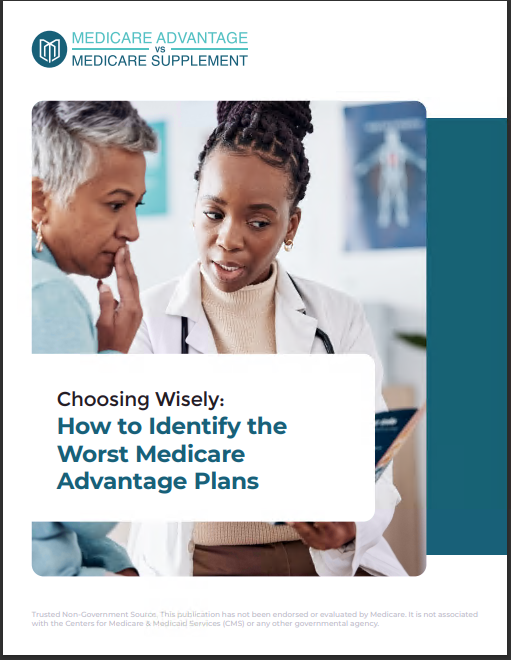Key Takeaways
- Rising inflation is pushing Medicare costs higher, while payment adjustments are lagging behind, leaving healthcare providers in a tight financial bind.
- The gap between increasing medical costs and stagnant Medicare reimbursement rates threatens the quality and availability of healthcare for seniors.
Rising Costs, Lower Payments: How Inflation Is Changing Medicare Reimbursement
The healthcare landscape in 2024 looks starkly different from previous years, driven by rapidly rising inflation and its cascading impact on healthcare systems. While inflation has caused the cost of goods and services to climb across all sectors, the strain on healthcare, particularly for Medicare beneficiaries and providers, has been profound. The combination of higher operational costs and stagnant or insufficient reimbursement rates is squeezing healthcare providers, ultimately putting the entire Medicare system under pressure.
Medicare, a program that millions of American seniors rely on, is designed to provide affordable healthcare. But with inflation pushing medical costs higher than anticipated, there’s growing concern about how well Medicare is keeping up. Healthcare providers are struggling to cover their rising expenses, while retirees face uncertainties about whether their Medicare coverage will be sufficient to meet their needs. The disparity between the rising costs of healthcare and Medicare reimbursement is creating a widening gap that could have long-term effects on the quality of care seniors receive.
The Inflation Surge: What’s Driving Healthcare Costs?
Inflation rates have surged in recent years, and the healthcare industry has not been spared. While inflation affects every aspect of life, its impact on healthcare is particularly alarming. Hospitals, clinics, and independent practitioners are grappling with increased costs for equipment, labor, and supplies. The prices for everything from prescription drugs to medical devices have skyrocketed, forcing providers to make difficult decisions about their services.
In 2024, the annual inflation rate is expected to remain above 4%, compounding the issue for Medicare providers. Rising labor costs are among the largest contributors, as nurses, doctors, and other medical staff demand higher wages to keep up with inflation. Additionally, supply chain disruptions have driven the costs of medical supplies to unprecedented levels, leaving healthcare providers scrambling to find affordable alternatives. This creates a ripple effect, with Medicare beneficiaries often experiencing higher out-of-pocket costs despite being part of a federally funded system.
Medicare Reimbursement: Falling Short of Rising Costs
Medicare reimbursement rates have always been a point of contention, but in 2024, the issue has reached critical levels. Medicare’s reimbursement structure was never designed to keep pace with inflationary spikes. While rates are adjusted annually, these adjustments are based on historical data, meaning they often fail to reflect the real-time economic challenges that healthcare providers face.
In 2023, for example, Medicare’s reimbursement rate increases were around 2-3%, far below the rising costs of care delivery, which in some regions exceeded 6%. This trend is expected to continue in 2024, leaving many providers in financial distress. For hospitals, this shortfall often translates into reduced services, staff shortages, or closures of non-essential departments. For private practice physicians, it could mean limiting the number of Medicare patients they accept, which is particularly concerning for areas with aging populations reliant on Medicare.
The Centers for Medicare & Medicaid Services (CMS) attempts to adjust reimbursement rates annually through the Physician Fee Schedule and other formulas, but these adjustments have failed to keep pace with inflationary trends. As a result, providers are facing a growing gap between the cost of delivering care and the amount they are reimbursed.
The Impact on Healthcare Providers
For healthcare providers, the mismatch between rising costs and stagnant Medicare reimbursement rates creates an unsustainable financial model. Hospitals, especially rural and smaller community hospitals, are being hit particularly hard. Many of these institutions operate on thin margins and rely heavily on Medicare payments, as a significant percentage of their patient base is composed of seniors. The inability to cover the costs of care delivery through Medicare reimbursements could lead to further closures of rural hospitals in 2024, exacerbating healthcare access issues in underserved areas.
Doctors and private practices are also feeling the pinch. With rising overhead costs, many physicians are reconsidering their participation in Medicare, which could result in fewer available doctors for Medicare patients. Specialists, in particular, may be less willing to accept Medicare patients due to the lower reimbursement rates compared to private insurance. This scenario could lead to longer wait times and reduced access to specialized care for retirees, making it harder for seniors to receive timely treatment.
How Inflation Affects Medicare Beneficiaries
Inflation doesn’t just impact healthcare providers—it affects Medicare beneficiaries directly as well. Seniors on fixed incomes are particularly vulnerable to rising healthcare costs. While Medicare covers a significant portion of their medical expenses, it doesn’t shield them entirely from inflation-driven increases in out-of-pocket costs. In 2024, retirees are seeing higher premiums, deductibles, and copays, squeezing their budgets.
Part D prescription drug plans are one area where inflation is hitting hard. As drug prices rise, the amount beneficiaries are expected to pay out-of-pocket has also increased. This has led to higher costs at the pharmacy counter, even for medications that were previously affordable. Additionally, inflation has caused a spike in the cost of supplemental Medicare plans, which many seniors rely on to cover gaps in traditional Medicare coverage.
Many retirees are also seeing an increase in their Medigap premiums. These supplemental plans, which help cover the costs that Medicare doesn’t, such as copayments and deductibles, have been subject to steep price hikes as insurers adjust to the rising cost of healthcare. For seniors living on Social Security and pensions, these increases in healthcare costs can erode their financial security.
Policy Responses: Is Medicare Keeping Up?
In response to these mounting challenges, there is increasing pressure on policymakers to overhaul Medicare’s reimbursement structure. Legislators and healthcare advocates are calling for a more dynamic system that can respond to inflationary pressures in real-time rather than relying on outdated models. Some proposals being discussed in Congress include tying Medicare reimbursement rates more closely to inflation and making adjustments more frequently, such as quarterly rather than annually.
In addition, CMS has been considering reforms that would give providers more flexibility in managing their costs while still maintaining quality care. This includes expanded use of value-based care models, which reward providers for improving patient outcomes rather than the volume of services they deliver. However, implementing these changes will take time, and in the meantime, providers are left to grapple with the immediate financial impact of rising costs.
Medicare Advantage plans have also been a focus of policy discussions. These plans, offered by private insurers but funded through Medicare, have become increasingly popular among seniors. In 2024, more than 30 million seniors are enrolled in Medicare Advantage, and this number is expected to grow. Policymakers are debating whether these plans should receive higher payments to offset the rising costs of care. However, critics argue that funneling more money into Medicare Advantage could drain resources from traditional Medicare, potentially deepening the financial strain.
The Future of Medicare in a High-Inflation Environment
Looking ahead, the future of Medicare in a high-inflation environment remains uncertain. Without significant policy reforms, healthcare providers will continue to struggle with rising costs and insufficient reimbursements. The financial sustainability of the Medicare system is at risk, and without intervention, seniors could face reduced access to care or lower-quality services.
In the long term, inflation could force Medicare to evolve. One possibility is a shift towards more privatized systems, where beneficiaries rely more on Medicare Advantage plans or other private insurance options. While this might help alleviate some financial pressures on the government, it could lead to a two-tiered system where wealthier beneficiaries receive better care, leaving low-income retirees in a vulnerable position.
Another potential outcome is increased rationing of healthcare services. With providers unable to sustain rising costs, there could be more instances of delayed care, longer wait times, and limited access to specialists. For retirees with chronic conditions or those in need of urgent care, this could have devastating consequences.
Medicare Reimbursement Must Evolve to Sustain Senior Healthcare
The combination of rising costs and insufficient Medicare reimbursements is reshaping the healthcare landscape for both providers and beneficiaries. As inflation continues to climb in 2024, it is clear that the current system is unsustainable without significant reforms. If Medicare is to continue providing quality care for millions of seniors, policymakers must act swiftly to address these challenges.
Without meaningful changes, the gap between rising healthcare costs and Medicare payments will continue to widen, potentially leading to reduced access to care, particularly in underserved areas. Healthcare providers cannot afford to absorb the cost increases indefinitely, and without adequate reimbursement, they will be forced to cut services or close their doors. For seniors, the stakes are equally high, as rising out-of-pocket costs and limited access to care could threaten their health and financial security.










